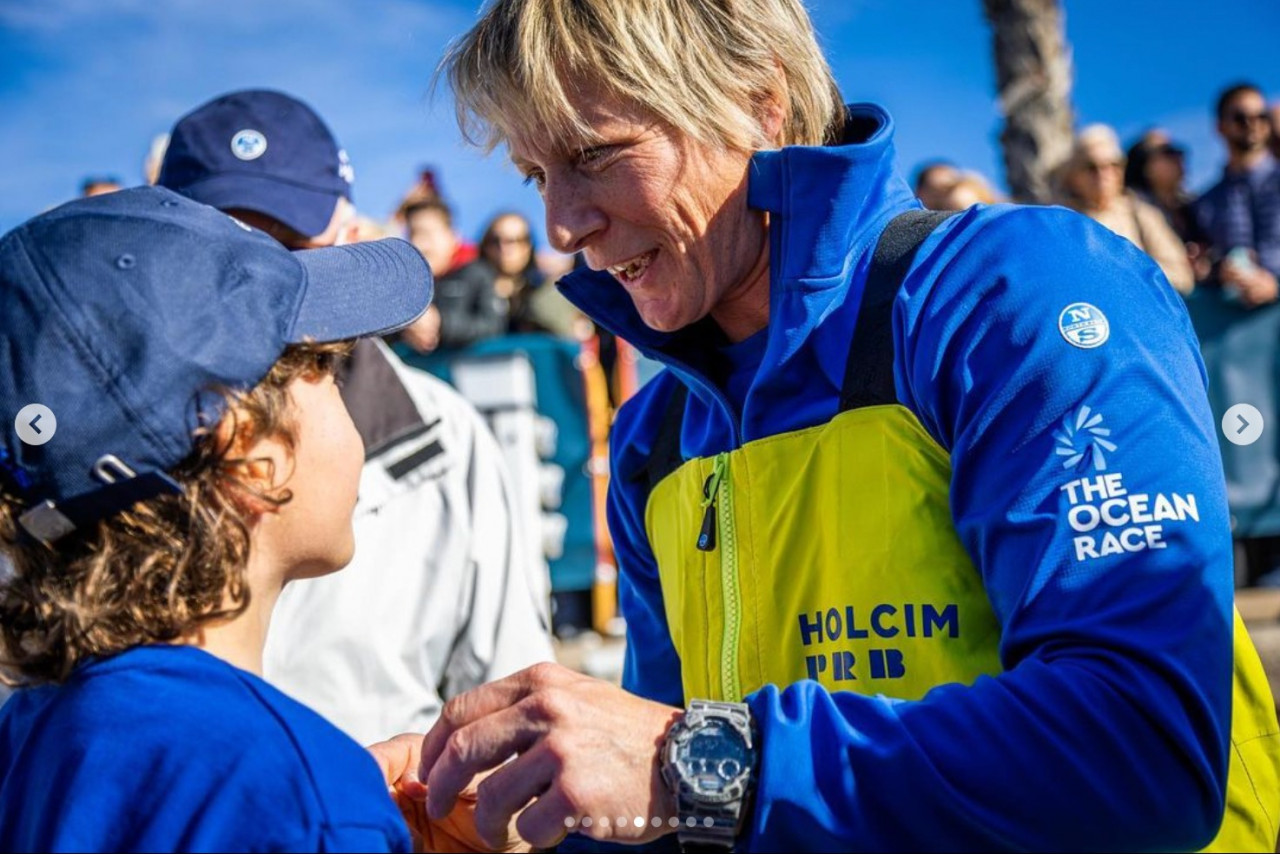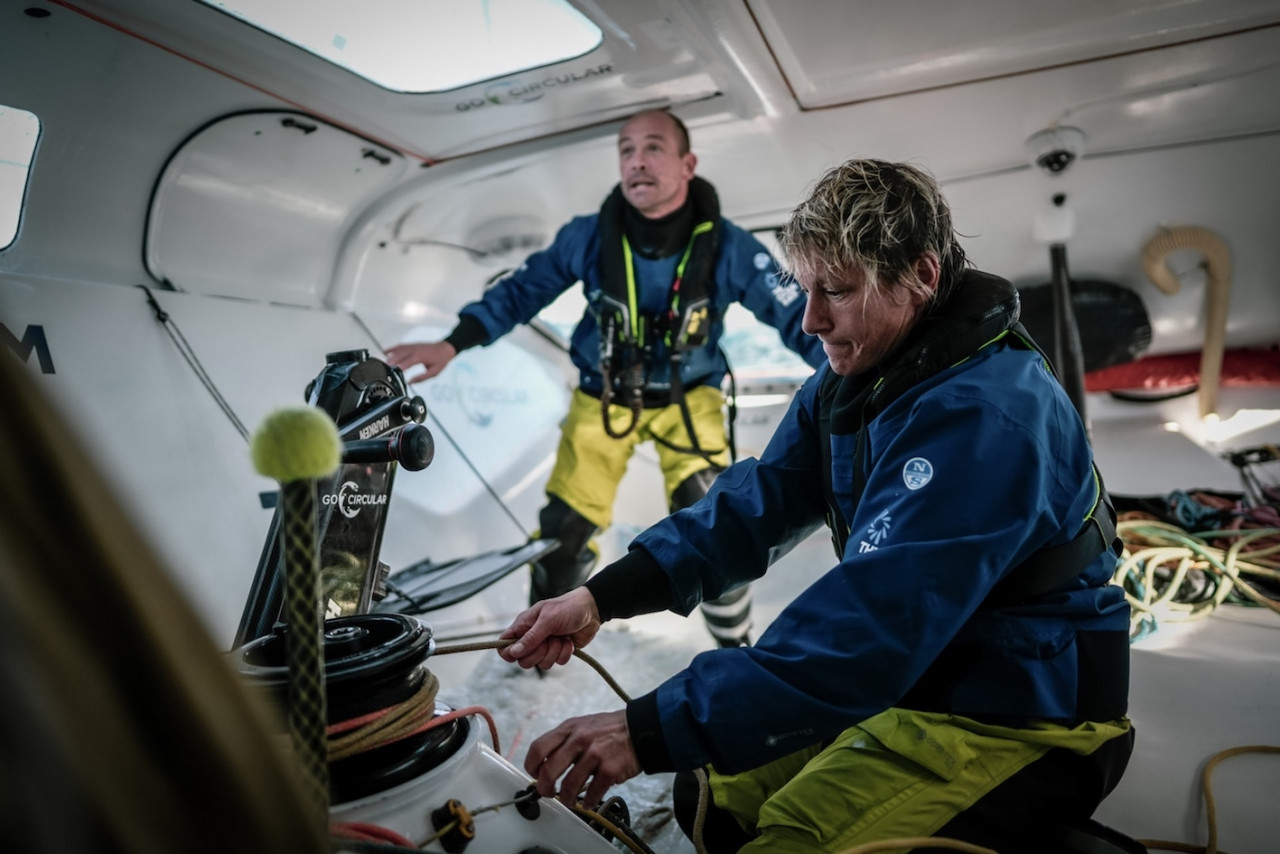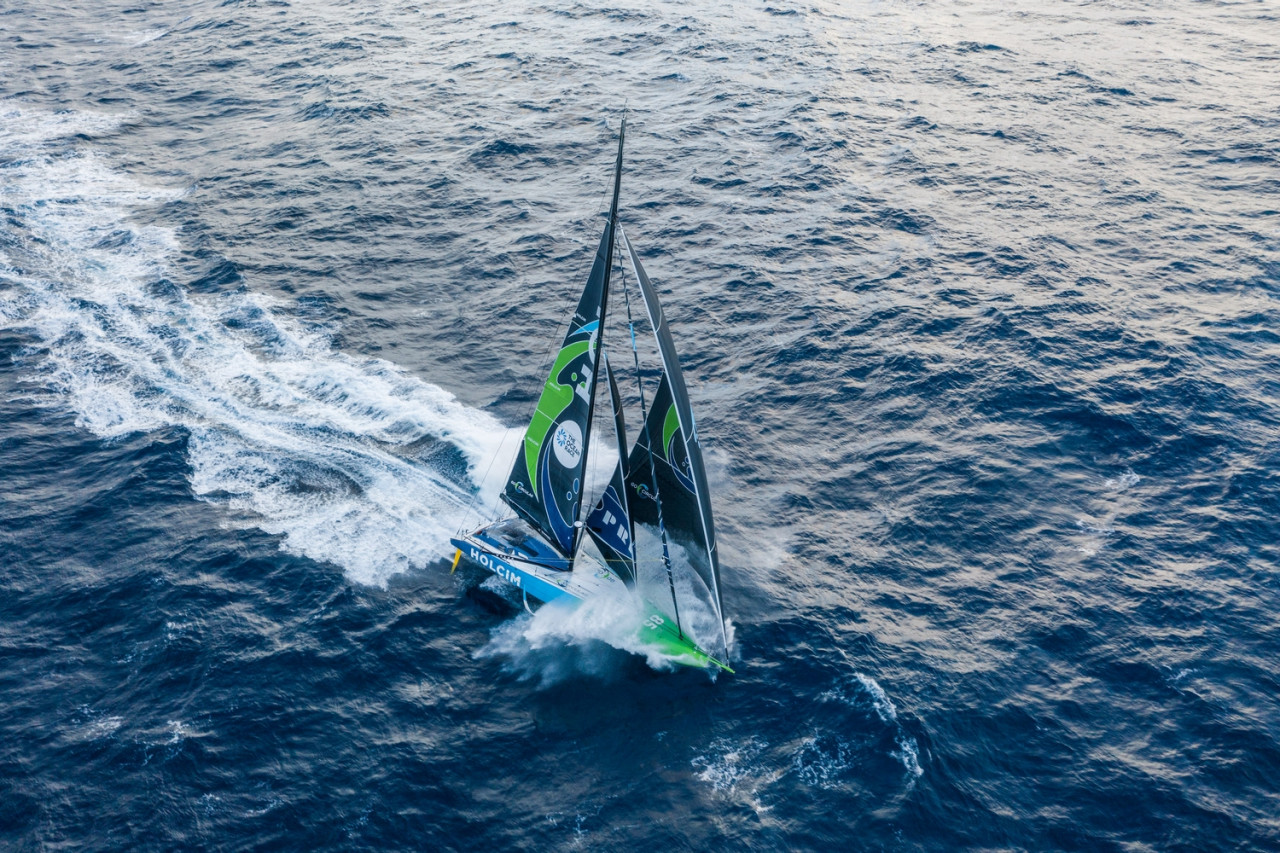Abby Ehler: I was adamant I was not going to do Leg 3

The 46-year-old British sailor Abby Ehler, who is on her fourth The Ocean Race as part of the crew of Holcim-PRB, admits it was a tough decision to agree to sail on Leg 3, after stepping aside for Leg 2.
Abby, we are just a few days away from the start of the epic Leg 3 from Cape Town to Itajai. We hear that originally you had decided there was no way you were going to sail on Leg 3, so what changed your mind?
I was pretty adamant I was not going to do the leg, and that was set in stone a little bit during the delivery back from Guadeloupe on this boat. It was so uncomfortable – it was just horrendous – and I was like there is no way I could survive 35 days doing this. Then I did Leg 1 and really enjoyed the crew. It was a very different experience. Kevin (Escoffier) is just positivity off the scale. And I think you just absorb his energy. It’s hard not to feel like you’re in good, safe company and in the knowledge that he can sail the boat on his own, and we’re effectively there it help him and make it go faster.
I thought about it and chatted about it a lot with my husband. The comment he made was this leg is the race; if you haven’t done this leg, you can’t really say that you’ve done it. So I think, deep down, there was a little feeling that wanted to do it, but I had my way-too-sensible head on. But thinking it through and analyzing it, I am confident that I can physically get through this. Chatting to Kevin, when we stopped in Cape Verde, and just having time to digest Leg 1, and thinking about it, I really do want to do this leg; I’d be angry with myself if I didn’t.
 © (C) JULIEN CHAMPOLION| polaRYSE | HolcimPRB
© (C) JULIEN CHAMPOLION| polaRYSE | HolcimPRB
Tell us about how you are going to deal with the psychological challenge? Will you be counting off the days in your head?
I find it can be quite depressing counting the days, and there is a great quote by Mohammad Ali – ‘don’t count the days, make the days count’ – and I think that will be my motto to live by. Cape Horn is obviously the key point from where you are going north, and you are going into warmer weather, and that will be almost like turning the corner to the final leg home. That’s the benchmark – get to Cape Horn, and mentally that’s a huge goal. I’ve been involved in the food packing, and making sure that we’ve got plenty of comfort food and variety, as well as the stuff that’s going to keep us going, because having a meal and snacks is such a milestone of each day. And yeah, I think I am just going to live by that.
And what will the Holcim-PRB team strategy be for this leg?
I know from our small chats already, that we have to kind of write-off the two wins in the first two legs and start “clean” because, as Kevin has said, if we get to the end of the race nobody will remember these two wins. It’s what happens going forward, so we have always got to be looking forward, and not back.
 © (C) JULIEN CHAMPOLION| polaRYSE | HolcimPRB
© (C) JULIEN CHAMPOLION| polaRYSE | HolcimPRB
What do you think is tougher – sailing a VO65 through the Southern Ocean to Brazil, or an IMOCA?
I’m going to say IMOCA, marginally. The difference is, on the 65, it’s very physically demanding – from the perspective that you are exposed to the elements. You’re on deck, you are getting wet, you are getting hosed, you are getting cold. And you savour that moment when you get down the hatch and you can dry off and get into your sleeping bag. On the IMOCA, when you are on-watch, it is very mentally involving and mentally stimulating, having to monitor data. You are almost having to dial into that sixth sense, because you don’t have the feel of the wind on your face and you are not getting hosed and you can’t see the waves. So you are having to rely, and concentrate on, your feel of the boat and looking at the numbers. But there is also just the physical factor – the boat is so uncomfortable, the motion is a lot impacts. It can be very hard to sleep and switch off, because of the noises and the alarms, and just the amount of stimulation mentally that’s going on around you. I find it very hard to switch off. So I have to say, yes, the IMOCA would win the difficulty comparison…
Tell us why you have kept coming back to this race, having first sailed it 22 years ago?
There is just something about it that I love, and I think it’s that you are always striving to do better than the last one, and each of those races that I’ve done. The first one (Amer Sports Too 2001-02), there was a lot of ‘I am doing it for the first time’ feeling, and the novelty factor was there, and soaking up all of the experience. At the end, I just had this burning desire to do it again and to do it better. Then there was a massive gap before Team SCA (2014-’15) came along, and that was a great experience because it was a professionally-funded campaign and we were well looked after. But we really lacked experience as a team. So to have the opportunity to sail with Team Brunel (2017-’18) – and to sail with the likes of Bouwe (Bekking), Capey (Andrew Cape), Pete Burling and Kyle Langford – was just amazing. I was suddenly in the company of champions, and able to soak up their knowledge, and we almost pulled off a win as the underdog team. Now, this edition presents itself as a completely different style of sailing, and the challenge is almost re-learning the sport.
 © JULIEN CHAMPOLION| polaRYSE | HolcimPRB
© JULIEN CHAMPOLION| polaRYSE | HolcimPRB
What would it mean to you to win the race, Abby?
It would be the ultimate dream and goal because, like I said, there is something about it that keeps drawing me back, and we came so close to it with Brunel (which finished third) and almost had a little taste of victory. So culminating with a win would probably tick the box, so I wouldn’t have to come back and do it again.
Ed Gorman
Teams info
After a stunning 2025 season Sam Goodchild is the IMOCA Globe Series Champion for the second time
After a long season at the top of the IMOCA fleet that featured three race wins, Great Britain’s Sam Goodchild is for the second time in three years the IMOCA Globe Series Champion.
•••Quel rôle peut jouer la course au large dans la transformation du transport international ? Avec Pie…
Pour ce 10ᵉ épisode de Transitions, enregistré au Havre lors du départ de la Transat Café L'Or, nous recevons Jeremy Pochman, PDG de 11th Hour Racing, et Pierre-Antoine Morvan, responsable du pôle course au large et supe…
•••